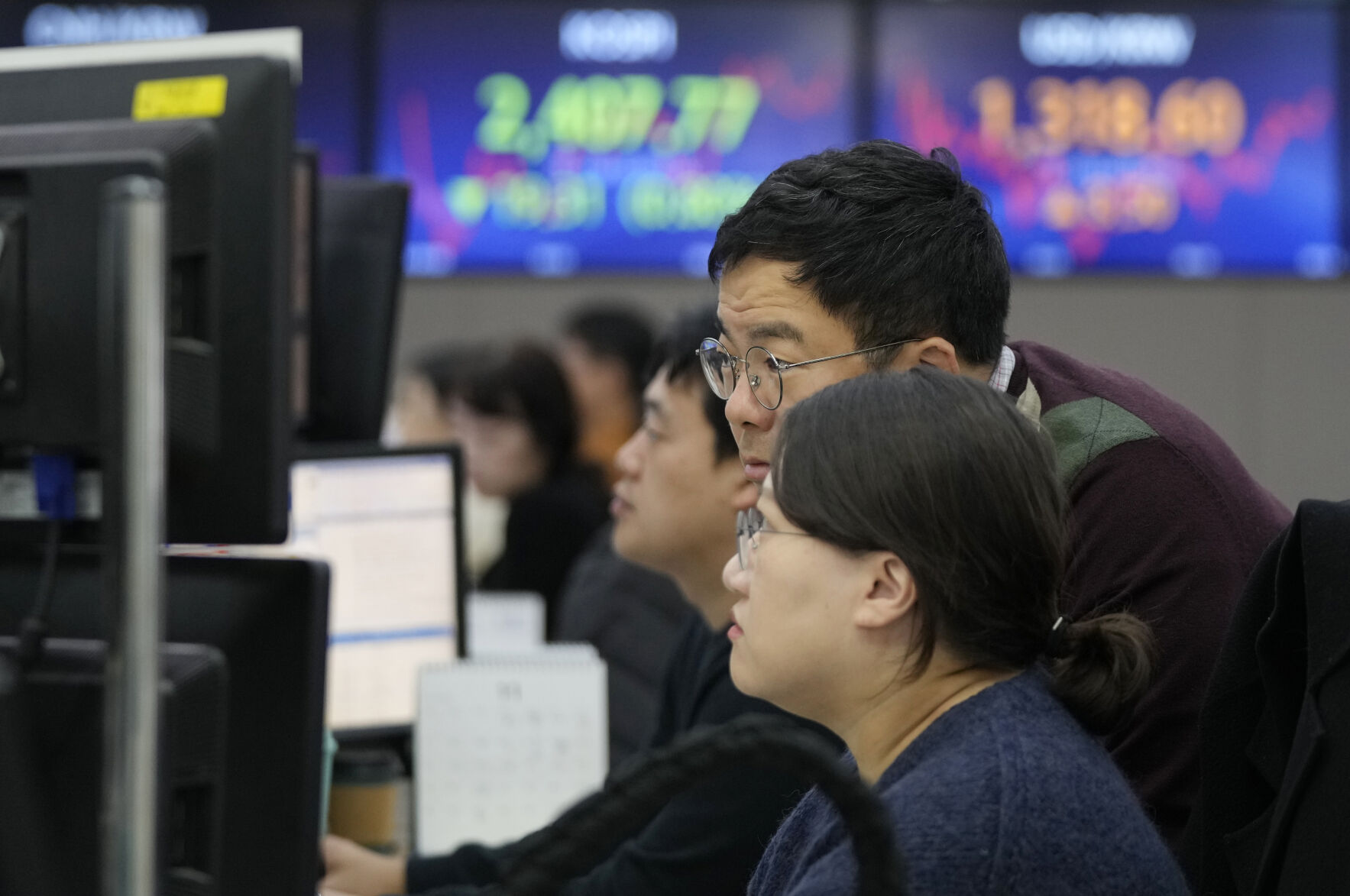Stocks are opening little changed on Wall Street as trading resumes in the U.S. after the Thanksgiving holiday. The S&P 500 slipped less than 0.1% Friday. The Dow Jones Industrial Average rose 50 points and the Nasdaq composite fell 0.2%. Markets will close early at 1 p.m. Eastern today. Shares were mixed in Europe and Asia. Oil prices fell. Investors will be watching to see how U.S. retailers fare with the unofficial start of the holiday shopping season with Black Friday, given growing concerns that spending may slow under pressure from dwindling savings, rising credit card debt and inflation.
THIS IS A BREAKING NEWS UPDATE. AP’s earlier story follows below.
BANGKOK (AP) — Shares were mixed Friday in Europe and Asia after U.S. markets were closed for the Thanksgiving holiday.
Germany’s DAX was nearly unchanged, at 15,998.44, while the CAC 40 in Paris likewise was flat at 7,279.03. Britain’s FTSE 100 dropped 0.4% to 7,453.40.
On Wall Street, the futures for the S&P 500 and the Dow Jones Industrial Average were up 0.1% ahead of Friday’s half-day trading session. On Wednesday, before the holiday, the S&P 500 rose 0.4% and the Dow rose 0.5%. The Nasdaq gained 0.5%.
It’s been a quiet week for data releases, but Japan reported its consumer inflation rose for the first time in four months, with big gains in food prices and hotel rates as tourism has soared. The consumer price index rose 3.3% in October from a year earlier, up from 3% in September in a trend contrary to the Bank of Japan’s forecasts for price pressures to abate toward the year’s end.
“Both the government and the BOJ will be concerned about higher-than-expected inflation,” Robert Carnell and Min Joo Kang of ING Economics said in a commentary. That will likely lead the central bank to adjust its extremely lax monetary policy in the new year, they said.
Tokyo’s Nikkei 225 added 0.5% to 33,625.53.
Chinese shares fell back after recent gains driven by expectations of more government support for debt-burdened property developers. Shares in Country Garden, one of the biggest, sank 7.6% after gaining 16% the day before.
In Hong Kong, the Hang Seng fell 2% to 17,559.42. The Shanghai Composite index lost 0.7% to 3,040.97.
South Korea’s Kospi declined 0.7% to 2,496.63, while the S&P/ASX 200 in Australia gained 0.2%, to 7,040.80
In Bangkok, the SET fell 0.7%, while Taiwan’s Taiex edged less than 0.1% lower.
Investors are watching to see how American retailers will fare as the holiday shopping season kicks off with Black Friday, given growing concerns that spending may slow under pressure from dwindling savings, rising credit card debt and inflation.
The latest quarterly results from a string of retailers from Walmart to Best Buy to Saks Fifth Avenue suggested a weakening of consumer appetites for spending even as inflation eases and employment remains robust.
As price pressures taper off, investors have grown more optimistic that the Federal Reserve may be done with raising interest rates to rein in inflation and even might consider cutting rates.
Fed officials have said the outlook for the economy remains uncertain and decisions on rates will depend on incoming reports. The Fed will get another big update next week when the government releases its October report for a key inflation measure tracked by the central bank.
In other trading Friday, U.S. benchmark crude oil lost 67 cents to $76.43 per barrel in electronic trading on the New York Mercantile Exchange.
Brent crude, the international pricing standard, was unchanged at $81.25 per barrel.
The U.S. dollar rose to 149.58 Japanese yen from 149.54 yen. The euro rose to $1.0913 from $1.0906.


